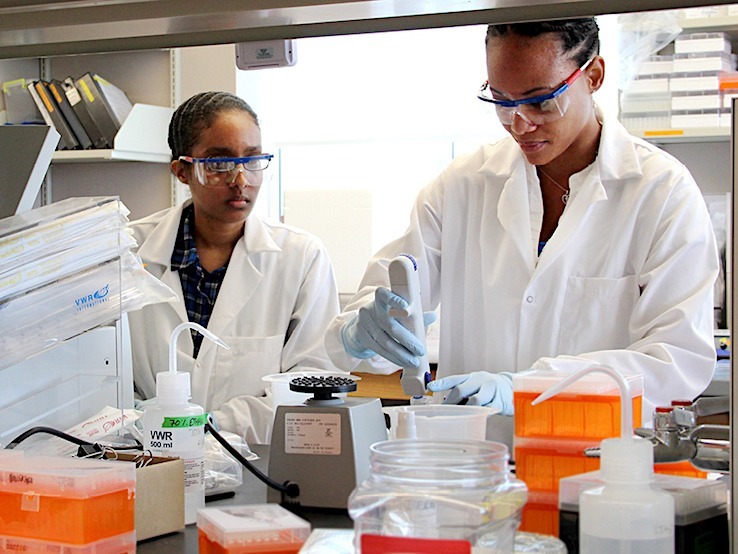News
Our research not only influences the scientific community, but the general public as well. We strive to share our discoveries with everyone. Read some of our latest articles on what is happening at the Nutrition Research Institute.
University of North Carolina Introduces New Research Core Merging Nutrition And Genetics
June 1, 2017 • The University of North Carolina Nutrition and Obesity Research Center (NORC) introduces the new Nutrigenetics and Nutrigenomics (NGx) Core. Located in the UNC Nutrition Research Institute (NRI) on the NC Research Campus in Kannapolis, NGx has been created to assist investigators in conducting studies that lead to a better understanding of the impacts lifestyle and genetics have […]
Know Your Neurotransmitters: Acetylcholine
June 1, 2017 • It’s high time we covered acetylcholine — the most plentiful neurotransmitter in the body. And our Know Your Neurotransmitters series continues with the best guest possible to talk to us about acetylcholine: Dr. Steven Zeisel, MD, PhD. Dr. Zeisel, UNC Nutrition Research Institute Director, was involved in the first study of the effects of choline — the nutrient precursor to acetylcholine — on humans […]
Shedding Light on Genetic Associations with Liver Cancer
May 1, 2017 • Many of the genes we study at the NRI are involved in nutrient metabolism. One of the ways we can learn about what a gene does is to delete it in an animal model and then see how the gene-deleted animals differ from normal animals. By observing how disruption of a gene affects an animal’s growth, development, and health, we can develop insights into […]
Whole Grains Prevent Chronic Lifestyle Disease in More Ways Than One
May 1, 2017 • Whole grains have more health benefits to offer other than those from consuming fiber. These plant foods are also unique and rich sources of phytochemicals, bioactive compounds exclusively produced by plants that lower the risk of chronic disease. Whole grains contain dietary fiber, vitamins and minerals, and phytochemicals, but […]
Genetic Risk Factors for Some Diseases Tied to Uric Acid
April 1, 2017 • We once thought of circulating uric acid levels as mainly a biomarker of kidney disease (or a very rich diet), but research over the past decade suggests that higher than normal levels of uric acid can, in fact, be a cause of some cardiovascular or chronic kidney diseases. Uric acid levels are strongly influenced by a person’s genetics and diet, so understanding genetic risk factors will help to […]
Cooking for Nourishment: Recipes
April 1, 2017 • Cooking for Nourishment: Recipes from the March 16 Appetite For Life presentation by Chef Megan Lambert and Steph Saullo, R.D. […]
Celebrating Neuroscience during Brain Awareness Week
April 1, 2017 • When people hear the word “nutrition,” they often think of eating healthy fruits and vegetables, counting calories, and constant exercise. At the Nutrition Research Institute (NRI) and across the North Carolina Research Campus (NCRC) in Kannapolis, NC, these are frequent topics of scientific inquiry. But to scientists, “nutrition” is a word with […]
Importance of Ratio in Essential Fatty Acids
March 1, 2017 • While omega-3 fatty acid deficiencies have been clearly linked to memory and learning problems in rodent models, studies involving dietary supplementation have produced mixed results. A contributing factor could be that the ratio of omega-3 and omega-6 fatty acids in the diet is a more important marker than omega-3 fatty acid intake alone. This hypothesis is based on the fact that these fatty acids share metabolic pathways, and on the assumption that […]
Children’s Health Study
The purpose of this study is to identify genes and lifestyle factors that affect children’s health status and overall well-being.
Recruitment Requirements:
Kids and teens ages 5-19 and their parents
Located in Cabarrus and neighboring counties
Support the NRI
By donating to the Nutrition Research Institute, your money targets the root of most American disease. Our scientists focus on how our genes respond to food so that soon medical practitioners will be able to guide people in their health from childhood through old age. Our critical research depends on the generosity of people like you.


